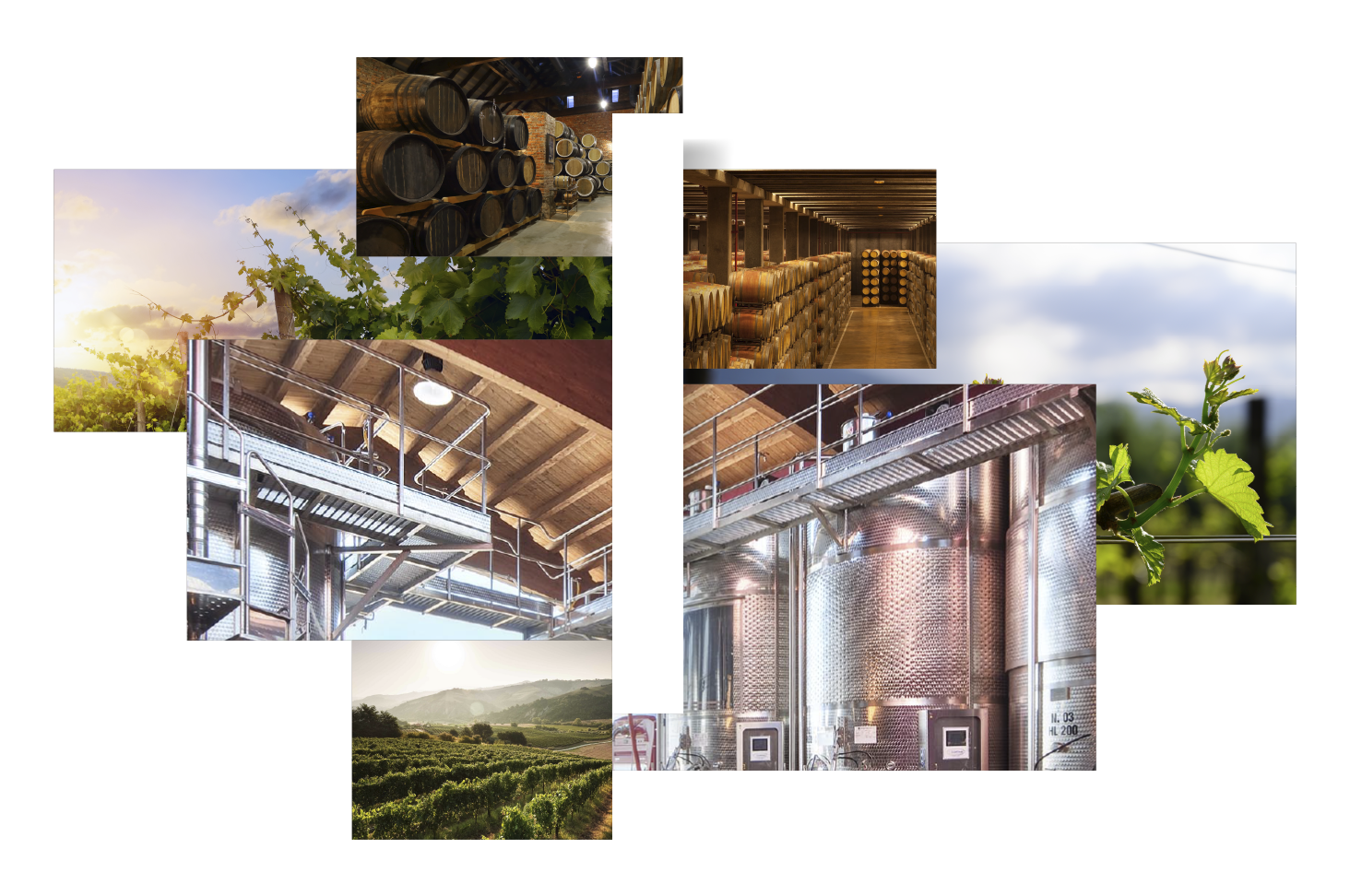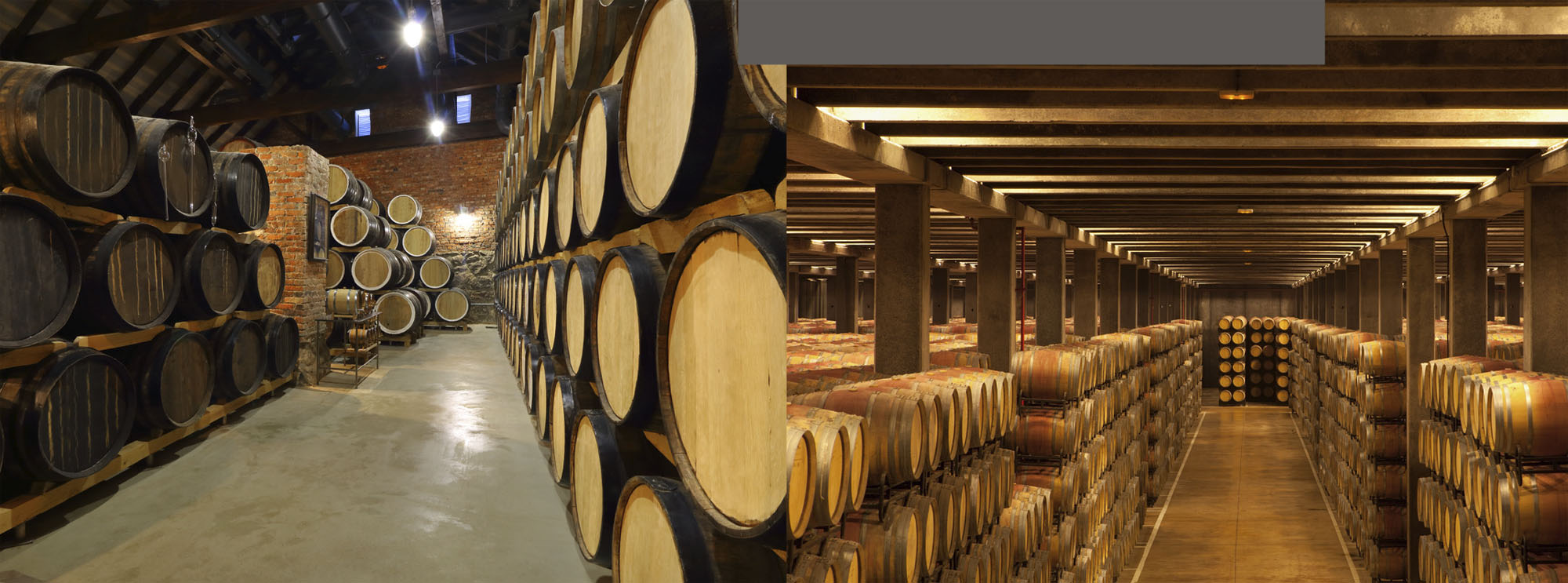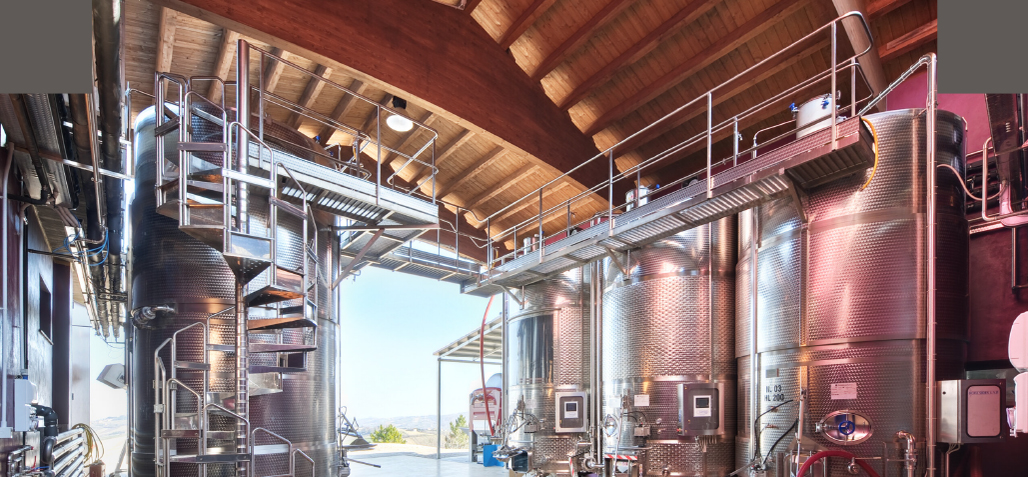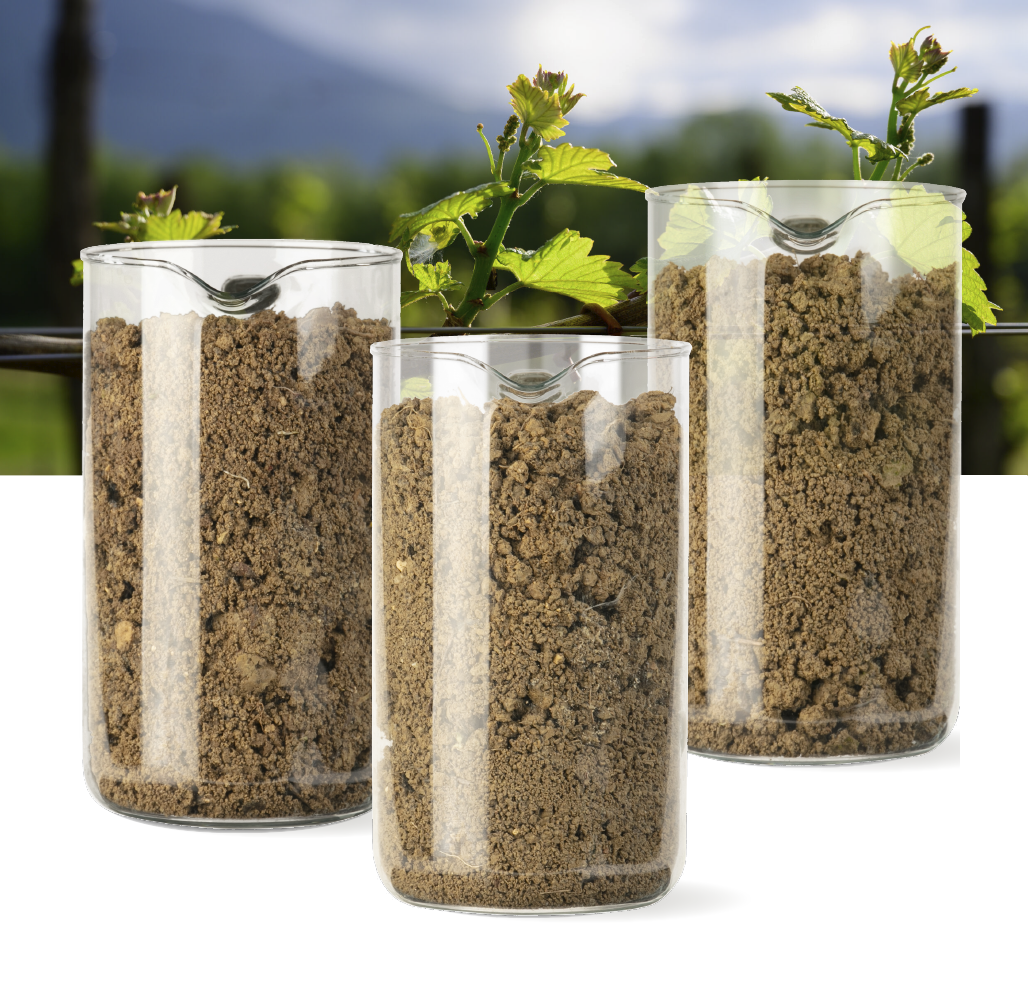WHO WE ARE
Kissed by the sun,
caressed by the wind
Since 1960, in the green heart of the Piceno
The Mannocchi family’s winery was born and developed in 1960 in Montalto delle Marche, in the green heart of the province of Ascoli Piceno.
Kissed by the sun, caressed by the wind
Our grapes grow in the hills of the Marche region, pampered by the heat of the sun and refreshed by the caress of the wind. The fifty hectares of the farm, mostly cultivated with vineyards, are immersed in a particular high hill microclimate. The strong temperature range between night and day, the low humidity, the freshness of climate, the proximity of the sea and the mountainous areas influence the proper development of the vines, the growth of grapes of the highest quality and the aromatic, fruity and velvety bouquet of the resulting wine. The Piceno offers a climate favorable to the prosperity of the vine and breathtaking view for its visitors: olive groves, vineyards, orchards, woods and cultivated fields.
Piceno, land of light
The structure of the soil, of medium texture tending to clayey, naturally controls the production and combines with human activity, to return grapes of the highest quality. The Piceno is a land of light, sun and pleasant breezes where the physical, biological and human factors of the territory reach the optimal state. Passion is a great strength, noticeable in the accurate organic cultivation and in the enthusiastic cultivation of native vineyards, great heritage of the Marche region.
This is where a fine wine with high quality standards is born, a combination of experience, nature and an environmentally friendly culture.


WHO WE ARE
Kissed by the sun,
caressed by the wind
Since 1960, in the green heart of the Piceno
The Mannocchi family’s winery was born and developed in 1960 in Montalto delle Marche, in the green heart of the province of Ascoli Piceno.
Kissed by the sun, caressed by the wind
Our grapes grow in the hills of the Marche region, pampered by the heat of the sun and refreshed by the caress of the wind. The fifty hectares of the farm, mostly cultivated with vineyards, are immersed in a particular high hill microclimate. The strong temperature range between night and day, the low humidity, the freshness of climate, the proximity of the sea and the mountainous areas influence the proper development of the vines, the growth of grapes of the highest quality and the aromatic, fruity and velvety bouquet of the resulting wine. The Piceno offers a climate favorable to the prosperity of the vine and breathtaking view for its visitors: olive groves, vineyards, orchards, woods and cultivated fields.
Piceno, land of light
The structure of the soil, of medium texture tending to clayey, naturally controls the production and combines with human activity, to return grapes of the highest quality. The Piceno is a land of light, sun and pleasant breezes where the physical, biological and human factors of the territory reach the optimal state. Passion is a great strength, noticeable in the accurate organic cultivation and in the enthusiastic cultivation of native vineyards, great heritage of the Marche region.
This is where a fine wine with high quality standards is born, a combination of experience, nature and an environmentally friendly culture.


THE VINES
Passion
is the strength of the company
Our vines have their roots in genuine soils caressed by a cool climate, a significant night/day temperature range and a low level of humidity. These peculiarities, combined with the proximity of the Adriatic Sea and the mountainous areas, influence the correct development of the vines and determine the organoleptic characteristics of future wines. The structure of the soils - of medium mixture tending to clayey - controls production and returns grapes of the highest quality, especially thanks to a skillful experience in processing.
Passion is the strength of Gobbi & Mannocchi, noticeable in the accurate organic cultivation and in the enthusiastic cultivation of native vines, a great heritage of Marche region.
PASSERINA
The Passerina vine is vigorous, rustic and adaptable, known since ancient times in the territory and linked to the rural tradition of cooked wine. It is today highly valued, in particular single-variety winemaking.
PECORINO
The Pecorino is another great rediscovery: a vine that grounds its roots in the most genuine territory, in the close links between agriculture and sheep farming. Confined for years in the restricted high-hilly and mountainous areas close to the Sibillini chain, today it is welcomed by the wine connoisseurs and lovers, who appreciate in purity the characteristic acidulous notes.
TREBBIANO E VERDICCHIO
Among the white berried varieties chosen by Gobbi & Mannocchi, in addition to the beloved Passerina and Pecorino, the timeless Trebbiano and Verdicchio stand out.
MONTEPULCIANO E SANGIOVESE
Among the red berried grapes, Gobbi & Mannocchi shows up the character of the Montepulciano with its fruity, savory and velvety taste (protagonist of the great intense reds) and the robust Sangiovese with its complex, balanced and full-bodied aromas.
MERLOT E CABERNET SAUVIGNON
And again, the international value of Merlot and Cabernet Sauvignon.
SISTEMA DI ALLEVAMENTO GUYOT
Breeding systems chosen ad hoc, such ad the Guyot and the spurred cordon, contribute to enhance the aromatic tones, letting the tastes and aromas of grapes and future wines express themselves.

THE VINES
Passion
is the strength of the company
Our vines have their roots in genuine soils caressed by a cool climate, a significant night/day temperature range and a low level of humidity. These peculiarities, combined with the proximity of the Adriatic Sea and the mountainous areas, influence the correct development of the vines and determine the organoleptic characteristics of future wines. The structure of the soils - of medium mixture tending to clayey - controls production and returns grapes of the highest quality, especially thanks to a skillful experience in processing.
Passion is the strength of Gobbi & Mannocchi, noticeable in the accurate organic cultivation and in the enthusiastic cultivation of native vines, a great heritage of Marche region.
PASSERINA
The Passerina vine is vigorous, rustic and adaptable, known since ancient times in the territory and linked to the rural tradition of cooked wine. It is today highly valued, in particular single-variety winemaking.
PECORINO
The Pecorino is another great rediscovery: a vine that grounds its roots in the most genuine territory, in the close links between agriculture and sheep farming. Confined for years in the restricted high-hilly and mountainous areas close to the Sibillini chain, today it is welcomed by the wine connoisseurs and lovers, who appreciate in purity the characteristic acidulous notes.
TREBBIANO E VERDICCHIO
Among the white berried varieties chosen by Gobbi & Mannocchi, in addition to the beloved Passerina and Pecorino, the timeless Trebbiano and Verdicchio stand out.
MONTEPULCIANO E SANGIOVESE
Among the red berried grapes, Gobbi & Mannocchi shows up the character of the Montepulciano with its fruity, savory and velvety taste (protagonist of the great intense reds) and the robust Sangiovese with its complex, balanced and full-bodied aromas.
MERLOT E CABERNET SAUVIGNON
And again, the international value of Merlot and Cabernet Sauvignon.
SISTEMA DI ALLEVAMENTO GUYOT
Breeding systems chosen ad hoc, such ad the Guyot and the spurred cordon, contribute to enhance the aromatic tones, letting the tastes and aromas of grapes and future wines express themselves.


THE VINIFICATION
Three systems
depending on the thickness of the skin and the year
The first system is used for the berry skins of normal thickness (usually used for red wines). This very delicate “modus operandi” consists of taking the must from underneath and sprinkle it, keeping it always wet.
The other system, the SOFT SYSTEM, is more invasive and is used for thicker berry skins. This type of vilification allows to have a deep color of the wine.
The third system called “GANIMEDE” is able to accelerate fermentation times thanks to the better management of the marc cap and to maintain an optimal internal temperature homogenization. Mechanic is not used, but the product is stirred through the gases that develop with the fermentation.
When a certain pressure is reached, the bypass valves are opened, allowing to discharge all the amount of CO2 accumulated below the diaphragm. This process is mostly used for thin berry skins and when cryomacerations are to be carried out; for rose and white wines or rainy years.

THE VINIFICATION
Three systems
depending on the thickness of the skin and the year
The first system is used for the berry skins of normal thickness (usually used for red wines). This very delicate “modus operandi” consists of taking the must from underneath and sprinkle it, keeping it always wet.
The other system, the SOFT SYSTEM, is more invasive and is used for thicker berry skins. This type of vilification allows to have a deep color of the wine.
The third system called “GANIMEDE” is able to accelerate fermentation times thanks to the better management of the marc cap and to maintain an optimal internal temperature homogenization. Mechanic is not used, but the product is stirred through the gases that develop with the fermentation.
When a certain pressure is reached, the bypass valves are opened, allowing to discharge all the amount of CO2 accumulated below the diaphragm. This process is mostly used for thin berry skins and when cryomacerations are to be carried out; for rose and white wines or rainy years.

TERROIR
The choice of terroirs guarantees
the high quality standard of our wines
Over the years, the Gobbi e Mannocchi farm has developed on two farms located in two completely different “terroirs”, such as to significantly characterize the grapes produced from which fine wines with high quality standards are derived.
A part of the vines is attached to the winery in the municipality of Montalto delle Marche, a hilly area about 400 meters from the sea and close to the Marche Apennine chain. A place characterized by pleasant winter breezes and the warmth of the summer sun. The continental climate has in fact harsh winters and hot summers whose temperature range influences the correct development of the vines.
The soil is of medium clayey mixture with exposure to the east where mainly white berried grapes used for the production of DOCG are grown. The microclimate that characterizes these fertile lands in the period August/September (during the phenological phase of veraison/ripening) is determined by high temperature variations between day and night (even of 15/18 degrees C) fundamental for the formation and accumulation in the berries of the aromatic precursors at the base of the organoleptic characteristics of future wines. We obtain wines with higher total acidity and a low pH, thanks to the good concentration of malic acid that we find at the time of harvest. It is structurally a less powerful wine, but very elegant on the nose..
The other part of the vines is located in Porto Sant’Elpidio in a completely different context, about 50 meters and 3 km as the crow flies from the sea. The flat land, facing south, enjoys a classic Mediterranean climate with temperatures that do not drop below 10 degrees C (even in the coldest months) and that are affected by the mitigating effect of the nearby Adriatic Sea in summer.
The favorable climatic conditions guarantee an advance of all the phenological phases of the vine of about two/three weeks which allow us to bring to complete maturation, that is to make the technological maturation coincide with the physiological one, even those more “difficult” vines such ad the Montepulciano. This allows to have a concentration of the polyphenolic framework (anthocyanins and tannins) even greater that 25/30%. The higher concentrations are also found in future wines which will therefore have a considerable antioxidant power with considerable beneficial effects even at a healthy level.
The wines that come from these grapes are very structured, rich and prone to aging.
The choice of having two completely different areas allows us to partially compensate for any sudden climatic changes that could occur and therefore guarantee a standard of typicality of the individual wines.

TERROIR
The choice of terroirs guarantees
the high quality standard of our wines
Over the years, the Gobbi e Mannocchi farm has developed on two farms located in two completely different “terroirs”, such as to significantly characterize the grapes produced from which fine wines with high quality standards are derived.
A part of the vines is attached to the winery in the municipality of Montalto delle Marche, a hilly area about 400 meters from the sea and close to the Marche Apennine chain. A place characterized by pleasant winter breezes and the warmth of the summer sun. The continental climate has in fact harsh winters and hot summers whose temperature range influences the correct development of the vines.
The soil is of medium clayey mixture with exposure to the east where mainly white berried grapes used for the production of DOCG are grown. The microclimate that characterizes these fertile lands in the period August/September (during the phenological phase of veraison/ripening) is determined by high temperature variations between day and night (even of 15/18 degrees C) fundamental for the formation and accumulation in the berries of the aromatic precursors at the base of the organoleptic characteristics of future wines. We obtain wines with higher total acidity and a low pH, thanks to the good concentration of malic acid that we find at the time of harvest. It is structurally a less powerful wine, but very elegant on the nose..
The other part of the vines is located in Porto Sant’Elpidio in a completely different context, about 50 meters and 3 km as the crow flies from the sea. The flat land, facing south, enjoys a classic Mediterranean climate with temperatures that do not drop below 10 degrees C (even in the coldest months) and that are affected by the mitigating effect of the nearby Adriatic Sea in summer.
The favorable climatic conditions guarantee an advance of all the phenological phases of the vine of about two/three weeks which allow us to bring to complete maturation, that is to make the technological maturation coincide with the physiological one, even those more “difficult” vines such ad the Montepulciano. This allows to have a concentration of the polyphenolic framework (anthocyanins and tannins) even greater that 25/30%. The higher concentrations are also found in future wines which will therefore have a considerable antioxidant power with considerable beneficial effects even at a healthy level.
The wines that come from these grapes are very structured, rich and prone to aging.
The choice of having two completely different areas allows us to partially compensate for any sudden climatic changes that could occur and therefore guarantee a standard of typicality of the individual wines.
